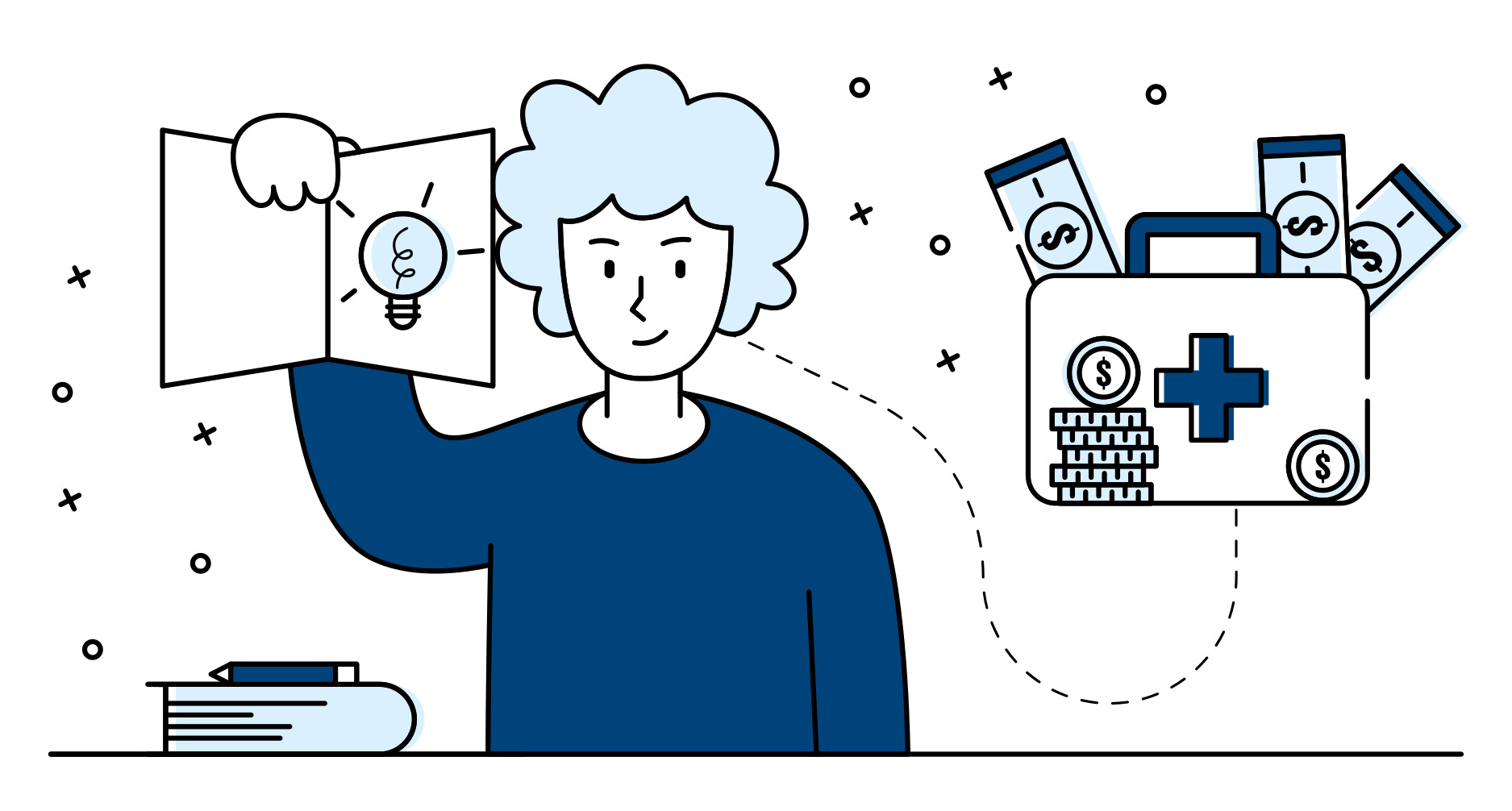For many Americans, emergency expenses don’t have a definition. They have an emotion. You know an emergency when you feel it, and when you feel it strongly, you dip into your emergency fund.
The problem with this? Our emotions can easily deceive us. Some pop-up expenses can feel like emergencies, when in reality they’re an expense you should budget for. Without clearly defined limits, you could easily find yourself depleting your emergency fund for expenses that, well, aren’t emergencies.
So what is an emergency expense and what’s not? Let’s look at when it’s appropriate to use your emergency fund.
What is an emergency expense?
Not every “surprise” expense qualifies as an emergency. Just because you forgot to budget for Christmas or someone’s birthday, for instance, doesn’t mean you should go digging into your emergency fund.
A true emergency expense will threaten your health, your income, or your financial future in a major way.
For instance, if your roof caves in, you should use your emergency fund to fix it. A house without a roof is a serious health risk, not to mention a mental health exacerbator that can carry over into your work performance.
On the other hand, if your roof is fully intact, and you see a once-in-a-lifetime offer for a discounted roof replacement, don’t use your emergency fund. It’s not an emergency. It’s preventive maintenance, sure. But you should budgetfor it, not dip into your emergency savings.
What doesn’t qualify as an emergency expense?
If it doesn’t threaten your health, income, or financial future directly, it’s not an emergency. Period.
For many people, the biggest grey area is opportunity costs. For instance, some people will see a highly desired stock go down in price, or they’ll find real estate property with eye-popping prices. They may get a vacation package, or a deal on a much-wanted purchase, each with a timestamp that expires before your paycheck arrives.
If I don’t get this right now, so the logic goes, it will go up in value and force me to pay more later. As long as I replace what I borrow from my emergency fund, what difference does it make?
Truthfully—it can make all the difference if a real emergency pops up while your funds are down.
Don’t be fooled by “deals.” These aren’t emergencies, and dipping into your emergency fund to cover them will only create bad habits. Eventually, premature “emergency” spending could come back to haunt you when a true emergency strikes and your fund isn’t fully stocked.
What are some examples of emergency expenses?
Again, if an unexpected expense threatens your health, your income, or your financial future in a major way, then you should use your emergency savings to cover it. To give you an idea of what that looks like in practice, here are six expenses that are definitely emergencies.
1. Home repairs
Your house is your shelter, and sometimes you have to make repairs to live there safely. Burst pipes that flood the interior, caved-in roofs or walls, failed water heaters, damaged sewer lines, or foundational cracks are all urgent problems you should pay to fix immediately.
2. Car repairs
Car repairs fall into the “emergency expense” category when they stop you from earning income. If you use your vehicle for work—a truck or cargo van, for instance—then by all means: use your emergency fund to get yourself back on the road.
On the other hand, if your vehicle is primarily recreational, or if you can find a way to live without one, you should probably do the mature thing and budget out repair costs.
3. Medical expenses
Surprise medical expenses, whether to you or a family member, are surefire emergencies. When a threat to your life and or health pops up, don’t hesitate to use your savings to foot the bill.
Of course, not all medical expenses automatically qualify as emergency expenses. Paying for your kids’ braces, for example, or buying health products for your skin are expenses you should save up and budget for.
4. Living costs after a job loss
Yes, yes, and yes: if you lose your job, use your emergency fund to stay afloat.
In fact, the reason most financial gurus recommend three to six months of emergency savings is to help you cover everyday expenses in the event that you lose employment. It can take awhile for you to secure a new position, and a hefty emergency fund can alleviate financial worry, helping you stay focused and confident.
5. Family deaths
Another common emergency is the death of a loved one. Whether you’re in charge of paying for the funeral, or you need to pay travel expenses to attend it, you shouldn’t feel guilty using your emergency funds (if you have to) to cover the costs.
6. Unexpected tax bills
Lastly, an unexpected tax bill qualifies as an emergency. If it means avoiding late penalties and interest charges for unpaid balances, use your emergency savings and pay the IRS.
Get major financial aid for any emergency
For most Americans, the problem isn’t identifying an emergency: it’s having the necessary funding in place when a real emergency strikes.
An emergency fund can help you stay afloat, sure, but what to do when an emergency is bigger than your emergency fund? What happens when your savings can’t cover the full cost of a medical expense, a home or car repair, a tax bill?
Well, for big emergencies—Stately has your back.
We offer affordable, low-interest loans with no hidden fees that can help you get through life’s biggest (and most expensive) challenges without going deep into debt.
Our salary-linked loans have some of the lowest APR around, and because they’re connected to your payroll, you don’t have to worry about being unable to pay it back. For smaller emergencies, you can take out a salary advance, which helps you borrow money you’ve already earned before your paycheck arrives.
Don’t let an emergency cause you to take out high-interest loans or credit cards. Check out Stately’s loans, and cover your emergencies when they happen.



